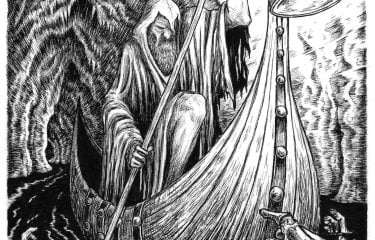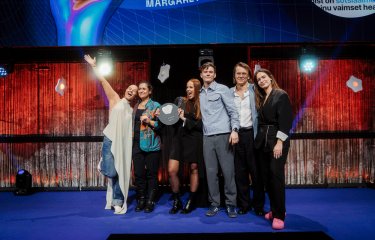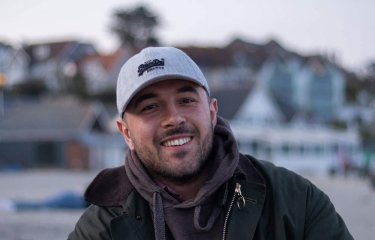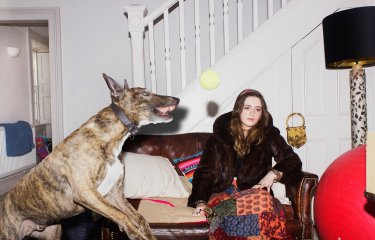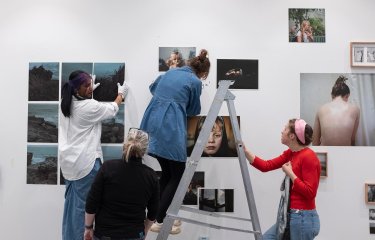Simeon Berends on a career shaped by curiosity
01 April 2025
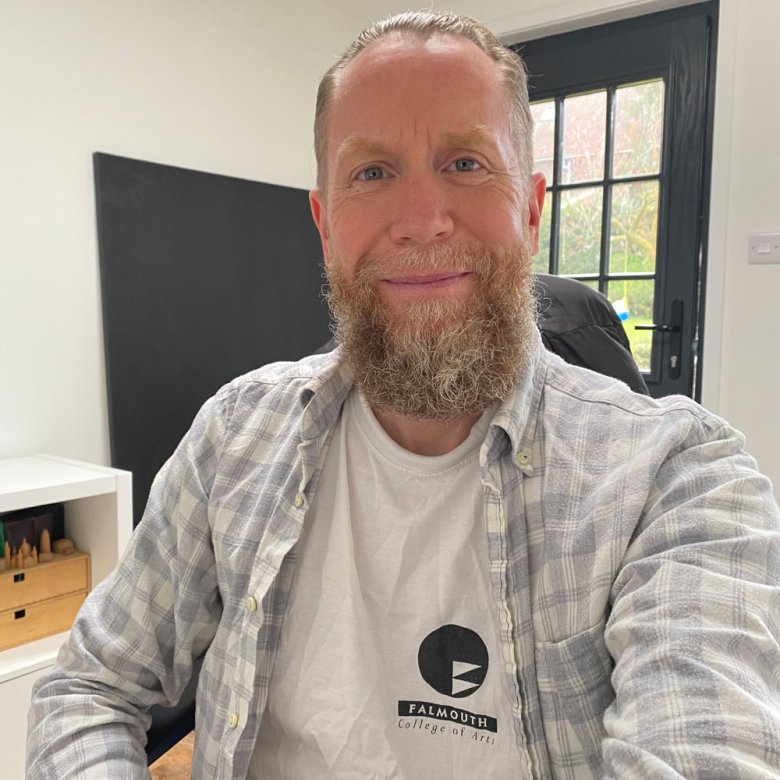
When Simeon Berends walked through the doors of a local radio station as a teenager, he was hoping for a shot at the breakfast show. Instead, it set him on a meandering path through journalism, television and advertising, before finding his feet in government communications.
We caught up with him to reflect on his time at Falmouth, the evolution of the media, and what it’s like to have over five million people engaging with your content every month.
When did you know you wanted to be in journalism and communications?
It all started when I volunteered at Radio Maldwyn, my local station, when I was 17. I volunteered every day there for nine months before getting my first paid shift. The Head of News, Laura Watts, had just completed the MA in Broadcast Journalism at Falmouth and taught me loads, made it exciting, and gave me her time – as did the other newsreaders. They gave me voice training and editing skills – all before I was 18.
What are your memories of your time studying at Falmouth?
I studied two courses at Falmouth – first the BA(Hons) Journalism, followed by the MA Broadcast Journalism, graduating for the second time in 2000.
I’ve got so many memories – from being on the beach in early March in glorious sunshine, to having some brilliant lecturers – Jim Hall (RIP) was outstanding. There were lectures that shape how I think to this day, and the balance between theory and practical learning was great. The facilities were also ace. On my first day in 1994, Jim asked if I’d used the internet. I hadn’t. So, he took me to the computer suite in Kerris Vean and showed me a ‘search engine’. He told me to look something up – I searched “Ice Cube (the rapper)” and got 24 results!
I’d spent so much time at the radio station and DJing through the rave era that I hadn’t committed to school – vocational education just suited me better. I got to Falmouth by fate, really. I already knew of it, then saw a tiny ad in The Guardian one day about a new Journalism degree. I rang on Monday, drove down with my dad on Wednesday, showed them my newsreading portfolio and bulletin tapes – got accepted immediately and moved down that Saturday. My local radio station helped me way more than A-levels ever did.
I’m meeting up with my Broadcast Journalism cohort at a reunion in June.
Do you still use skills from the course?
Absolutely. The impartiality I developed is still key, especially given the shape of the media today with so many agendas at play. My journey wasn’t traditional – I took a year out, lived in Truro, worked in Newquay – so when I returned, I joined a new cohort and moved in with them. We’re still in touch, we speak on WhatsApp daily and are now going to each other’s 50th birthdays!
You went on to work in Ibiza – tell us more about those early years post-graduation.
It was amazing. Falmouth really gave me the confidence to succeed. I got the Ibiza job because they were looking for the best and went to the best places – Falmouth was known for its news reading. I’m not saying I was the best – I just saw the notice first and tore it down! I worked as a producer and content creator on the World Pop/Mobile Ibiza project. It was one of the first multimedia jobs – writing, video, audio – the internet was just starting and they threw money at it.
When I came back to the UK, I tried to get into newsreading, but it was harder than expected. However, Falmouth had taught me that I could pivot; I looked at my work, and since I’d done some TV in Ibiza, I thought I’d give it a whirl. I went on to work on Big Brother (Series 2 and 3), Fame Academy, and Most Haunted. I produced the UK’s first interactive cartoon where you could vote on what happened via text message! Then I moved to Nickelodeon and made kids’ TV – one show even won a BAFTA. Amazing memories. It’s a tough industry – you’ve got to be bold and confident to succeed, and I thank Falmouth for that.
Over 25 years, you've worked in journalism, TV, advertising and now government communications. Was it intentional, or did it happen organically?
Totally by accident! I started as a newsreader – that was and is my first love, but I struggled to get a foothold, so moved into TV. Being a TV producer certainly felt ‘cooler’ than newsreading! Working in Soho in the noughties – ace times.
I moved into advertising after 10 years in TV. Nickelodeon asked me to help set up a creative unit for brands wanting to use Nick IP. I didn’t want to be out of work over Christmas, so thought, why not? Two years later, I had 150 ad campaigns under my belt. So there I was in adland, working as a ‘creative’ – coming up with ideas for brands and organisations.
TV producers do both production and creative. Advertising is easier to get into short term – come in, do the work, get out. I worked on Adidas campaigns with Pogba, Messi, Suárez, and for Sony, Vodafone, Nando’s, Barclaycard... and many more Some long gigs too – a year at Adidas, another at ITN Productions doing live TV ads. But it’s demanding and I think I burnt out.
Luckily, I saw a job in government comms, applied, and got it – just as COVID hit. I worked on vaccine content with ministers and Professor Chris Whitty’s team. Knowing things before the public is a privilege – and a buzz! I’ve been promoted twice and am now the Content and Channels Lead at Ofgem. If you’ve seen our content on LinkedIn, Instagram, Twitter or Nextdoor – that’s me and my team. Over five million people a month see our work.
How have media and journalism changed throughout your career?
It’s become far more polarised. There used to be a ‘lean’ – now it’s outright left or right, with nothing in between. I don’t watch the news anymore – it’s all bad, in my opinion. Impartial voices are being silenced – the AP being thrown out of White House briefings for not using ‘Gulf of America’ is just one terrifying example.
Do you have any other projects coming up?
I’m working on AI tools to help government departments, but I’m pretty settled. Maybe one more career step, but I’ve got a young family now and (hopefully this doesn’t sound big-headed) I think I’ve done OK. I’ve worked hard and made a lot of high-profile content. Balancing work and family is the priority now.
External links
Getting Luis Suárez to break a world record

